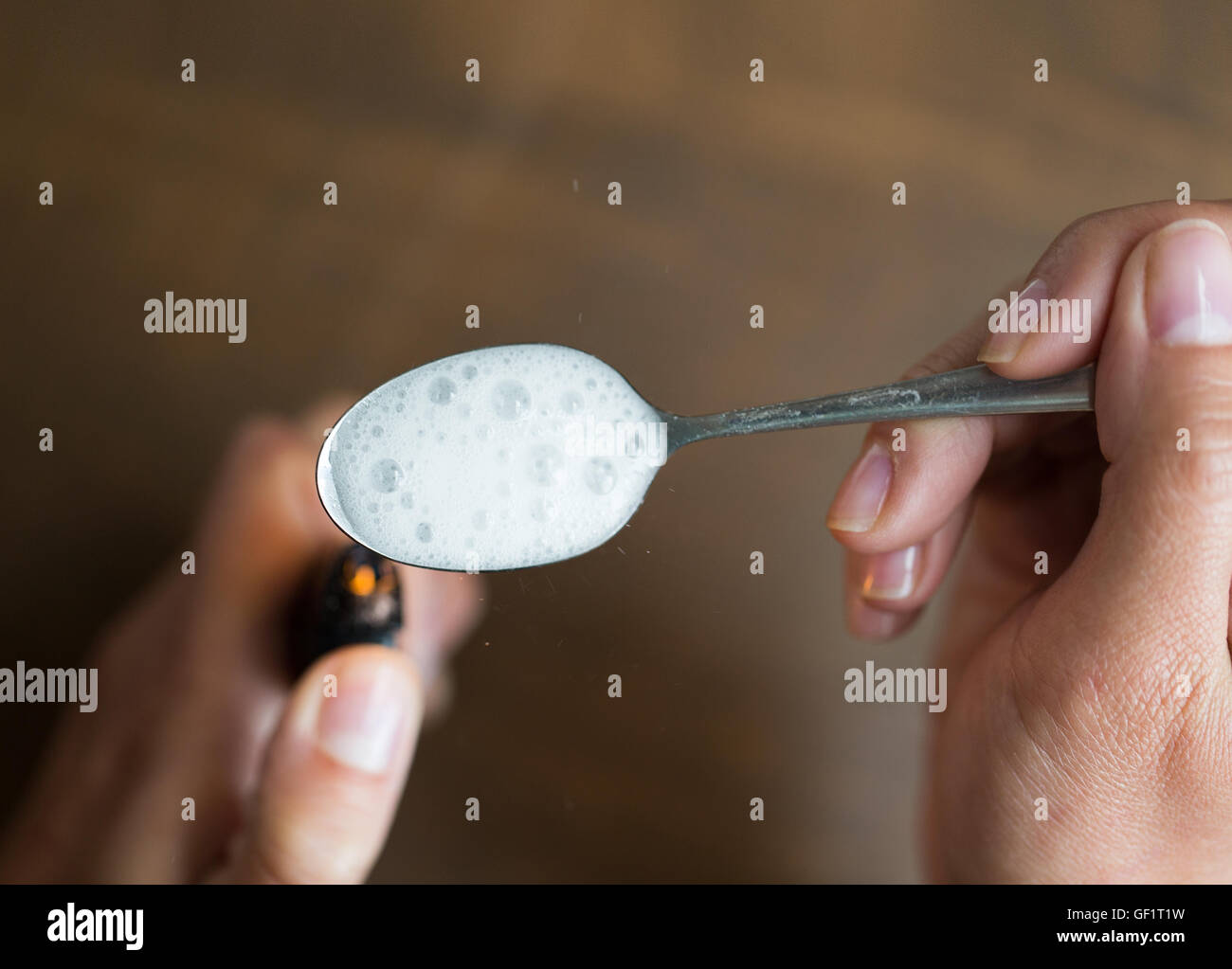
How Cook Crack Cocaine
4 days ago - Cooking Crack with the Baking Soda Method; Crack, Glorious Crack; Or. The other way to make a coke freebase is to use ether or ammonia.
Related Questions: What is Crack? What is Cocaine? Specifics of Cocaine and Crack Cocaine is a hydrochloride salt in its powdered form, while crack cocaine is derived from powdered cocaine by combining it with water and another substance, usually baking soda (sodium bicarbonate). After cocaine and baking soda are combined, the mixture is boiled, and a solid forms. Once it’s cooled and broken into smaller pieces, these pieces are sold as crack. The name crack derives from the crackling sound that is produced when the drug is heated and then smoked, according to the Center for Substance Abuse Research.
Since crack is so highly concentrated, it is extremely addictive. While not common,. Cocaine and crack certainly differ in appearance. Cocaine is generally found in white powder form, and crack is found in a rock form that is generally white, cream, tan, or light brown. Sim emu 601 configurator v21 free. Crack and cocaine also differ in the manner in which they are used. Cocaine is typically snorted, and crack is typically smoked. Another difference between the substances relates to the high produced.
The intensity and duration of the high largely relate to how the drug is taken, per the National Institute on Drug Abuse., resulting in a more intense but shorter high. When cocaine is snorted, it takes longer to feel its effects but the resulting high lasts longer. According to a clinical pharmacist, cocaine and crack produce very different effects in the body, largely related to how they are usually administered.
When cocaine is snorted, its effects occur in about 1-5 minutes; they peak within 20-30 minutes; and they dissipate within 1-2 hours. The effects of crack take hold in under a minute, peak in 3-5 minutes, and last 30-60 minutes. If cocaine is injected, however, the effects begin, peak, and for about as long as crack. While injection is not the most common method of cocaine consumption, it is used by some people.

• • • Who Uses Crack, and Who Uses Cocaine? Cocaine is expensive to buy on the streets. Crack was developed as a cheaper alternative to cocaine, making it more easily affordable to users. As a less expensive alternative, it became more accessible to those in the lower socioeconomic demographic.
These people had less disposable income available to spend on drugs, but they were seeking options to get high. This brought crack use to low-income and minority communities. By the 1980s, there was an epidemic of crack use in these communities.
As a result, there is a public perception that cocaine is associated with more affluent drug users, whereas crack use is associated with those in lower income brackets and minorities. Despite this widespread belief, information from the National Institute on Drug Abuse showed that in 1991, the majority of crack users were Caucasian.
Generally, those who want a more intense, faster, cheaper high are attracted to crack. Some people begin with cocaine use and then transition to crack use when the habit of cocaine use is too expensive to maintain. According to the National Study on Drug Use and Health, in 2008, there were 1.9 million cocaine users, of which 359,000 used crack. • Decreased appetite • Increased heart rate • Intense cravings Smoking crack causes these effects to take hold more quickly and intensely than cocaine because crack is absorbed through the membranes of the lungs, entering the bloodstream and the brain within 10-15 seconds.
As such, the risk of overdosing is extremely high, leading to convulsions, coma, and death. Symptoms of crack overdose are rapid heart rate and hyperventilation.
Long-term effects of crack use include mood changes, irritability, restlessness, depression, anxiety, paranoia, and hallucinations. It is easy to develop a crack or cocaine abuse problem because the drug in both forms is highly addictive. As such, issues with withdrawal often arise.